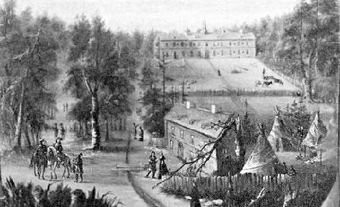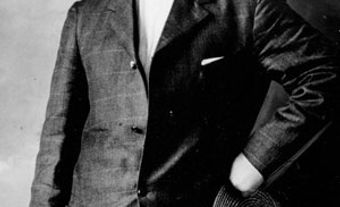Joseph-François Lafitau, priest, Jesuit missionary, legal philosopher (b at Bordeaux, France 1681; d there 3 July 1746). He was the discoverer of ginseng in North America, and his landmark study of the laws and customs of the Iroquois, Moeurs des sauvages amériquains, comparées aux moeurs des premiers temps, was published in 4 volumes in Paris in 1724, subsequently translated into Dutch and German, and even circulated in China. Stationed at Sault-St-Louis [Caughnawauga] in New France by his Jesuit superiors in 1713, Lafitau spent 5 years observing the customs of the Iroquois with a view ultimately to illuminating those of the ancient civilizations he had studied at several European universities through comparison and contrast with Iroquois practices.
Moeurs, the result of this empirical ethnography, bears a striking resemblance to philosopher Montesquieu's famous De l'esprit des lois, published in 1748, although Montesquieu did not cite Lafitau. Largely ignored by other Enlightenment thinkers, this early philosopher has only received prolonged attention in the 20th century, principally as a result of the favourable review of his work by such contemporary historians of ideas as Arnold Van Gennep, Gilbert Chinard, Alfred Métraux and Peter Stein.

 Share on Facebook
Share on Facebook Share on X
Share on X Share by Email
Share by Email Share on Google Classroom
Share on Google Classroom


